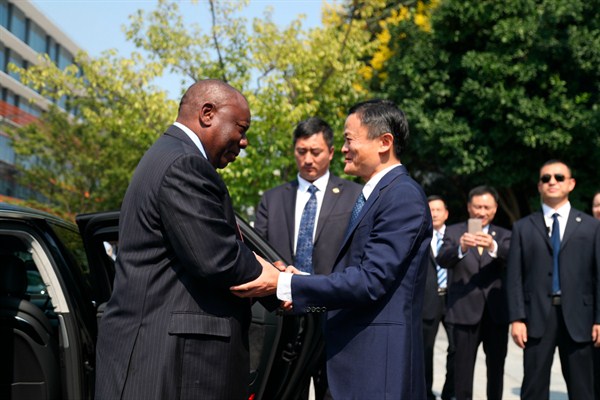By his own account, Jack Ma, the founder of the hugely successful Chinese e-commerce company Alibaba, only visited Africa for the first time in 2017, when he went to Kenya and Rwanda. And yet there he was earlier this month in the Opinion pages of The New York Times, full of supposed wisdom about how the continent can leap into the future by cultivating his own brand of entrepreneurialism. “If we all work together to support entrepreneurs,” Ma gushed, “then Africa will become a hub of innovation and growth, the global leader we know it can be.”
It is worth noting that after founding Alibaba in 1999, Ma became one of the world’s richest people not only as an innovator, but also, perhaps even primarily, as an astute adopter of trends set in motion by others. Early Alibaba, after all, essentially copied elements of the business models of eBay and PayPal.
But putting aside how Ma got rich, as well as his overly simple and confident prescription for Africa’s problems, consider instead how his engagement with the continent fits in with another big, recent trend. Global tech billionaires and their companies are competing to proclaim their love for the continent and offering to help Africa by funding scholarships, setting up contests for young entrepreneurs and taking on other initiatives that flirt with philanthropy.

